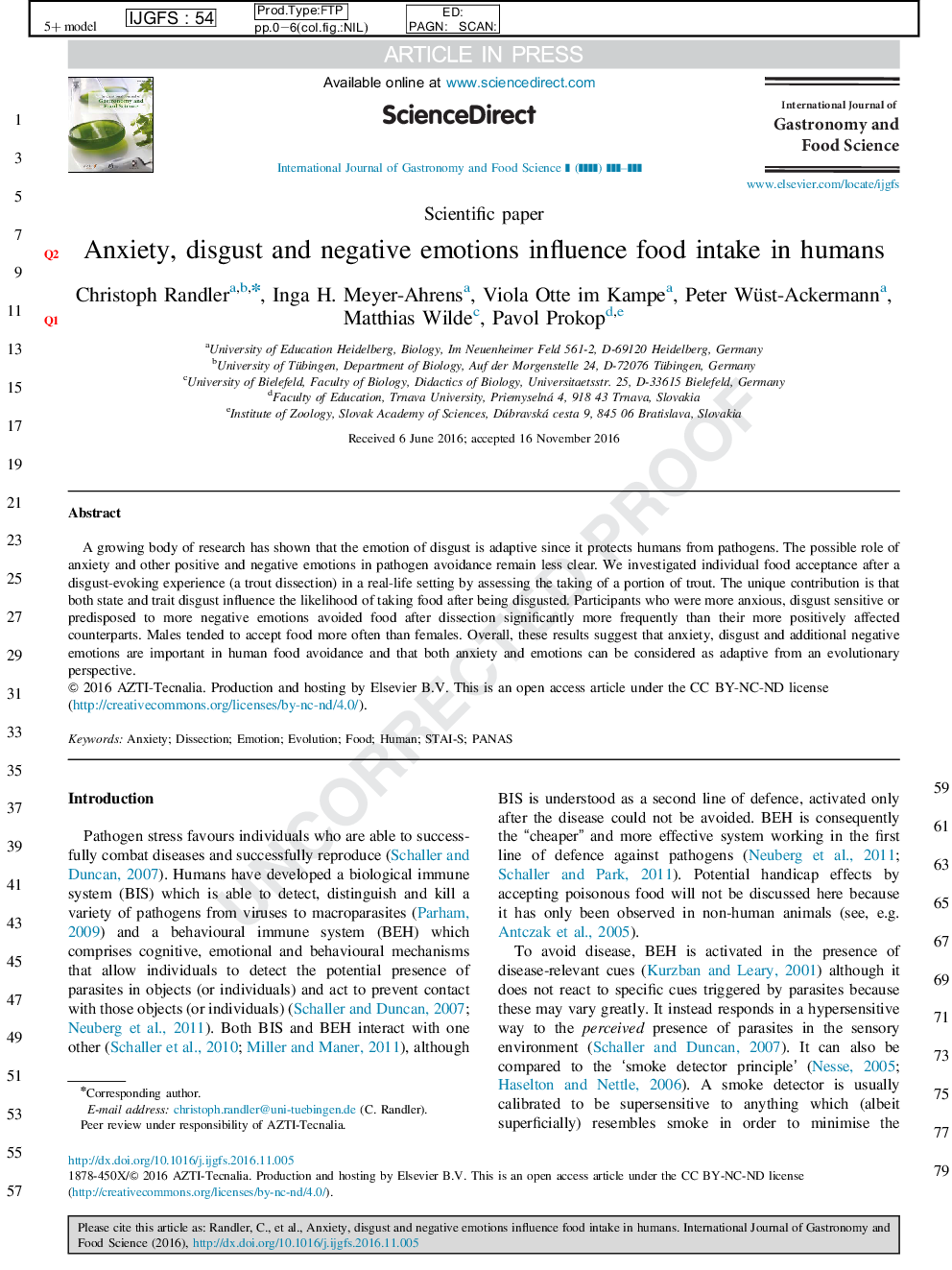ترجمه فارسی عنوان مقاله
اضطراب، انزجار و احساسات منفی بر روی مصرف غذا در انسان تاثیر می گذارد
عنوان انگلیسی
Anxiety, disgust and negative emotions influence food intake in humans
| کد مقاله | سال انتشار | تعداد صفحات مقاله انگلیسی |
|---|---|---|
| 125844 | 2017 | 6 صفحه PDF |
منبع

Publisher : Elsevier - Science Direct (الزویر - ساینس دایرکت)
Journal : International Journal of Gastronomy and Food Science, Volume 7, April 2017, Pages 11-15
ترجمه چکیده
بدن رو به رشد تحقیقات نشان داده است که احساس غرور سازگار است زیرا از انسان ها محافظت می کند. نقش احتمالی اضطراب و دیگر احساسات مثبت و منفی در اجتناب پاتوژن هنوز مشخص نیست. ما با بررسی ارزیابی گرفتن بخشی از ماهی قزل آلا، پس از تجربیات ضد انسانی (تشخیص ماهی قزل آلا) در یک محیط واقعی زندگی مورد بررسی قرار گرفتیم. منافع منحصر به فرد این است که هر دو حالت و خصیصه بروز نفوذ احتمال مصرف مواد غذایی پس از نفرت. شرکت کنندگان که بیشتر مضطرب بودند، حساس به حساسیت یا حساسیت نسبت به احساسات بیشتر منفی داشتند، پس از انحلال، غذا را به طور معنی داری بیشتر از همتایان بالقوه تحت تأثیر قرار دادند. مردان بیشتر از زنان بیشتر غذا می پذیرفتند. به طور کلی، این نتایج نشان می دهد که اضطراب، انزجار و احساسات اضافی منفی در اجتناب از خوردن غذا اهمیت دارد و هر دو اضطراب و احساسات را می توان از یک دیدگاه تطبیقی در نظر گرفت.

